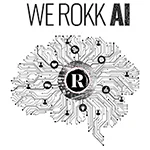 |
| Allyne Mills |
Time and time again, technology has risen to meet society’s biggest challenges. As we continue to address the COVID-19 pandemic, this has never been truer. The nearly universal acceleration in the adoption of technologies by consumers and corporations for communication, commerce, cybersecurity and health, to name a few, has also shifted physical, philosophical and very real business structures and priorities. Even as they have brought to market new innovations and facilitated services critical for global resilience, geopolitical, social and environmental issues have impacted technology companies in ways they did not anticipate, and that are likely to continue.
Whether advancing AI, 5G, VR/AR, cybersecurity, quantum computing, IoT, robotics, cloud or smart everything, no matter what the industry sector, it’s imperative in 2022 and beyond that technology companies look inward and take action. This reflection should be multifold. Review the expanse and inclusiveness of their cultures. Question their own authenticity: does what they do mirror what they say? Identify the tangible impact their technologies and solutions are having on society. Filtering this assessment through the lens of their corporate values, technology companies may find they need to realign and reboot.
| This article is featured in O'Dwyer's Nov. '21 Technology PR Magazine (view PDF version) |
Authenticity, hybrid work and values
The reality today and for the foreseeable future is that workforces will, for the most part, be distributed and dynamic. Hence, customers, partners, investors and prospects will also likely continue to commingle their personal and professional lives. Anyone who’s been on a teleconference has experienced on- and off-screen fly-bys of children, pets, roommates or car traffic. Whether humorous or a hindrance, there’s no denying hybrid work has had a humanizing effect on many corporate cultures.
As technology companies determine their individual hybrid processes and policies, transparency will go a long way towards strengthening the authenticity of their brands. Because of the greater emphasis on cloud computing, collection of big data and information security, demand for technology talent is significant and will only grow through 2030, according to the Bureau of Labor Statistics. So, implications extend to the potential candidates tech companies may be looking to recruit. Being genuine helps build credibility. For technology companies, this is tied to the values they espouse and publicly communicate about how they’re approaching the future of work that’s upon us.
Inclusiveness and innovation
The confluence of geopolitics, the pandemic, racial, social and environmental issues punctuate how critical diversity, equity, inclusion and sustainability are to corporate reputations. And the media will continue to shine a light on these concerns. Nearly 80 percent of workers in a recent CNBC/SurveyMonkey Workforce Survey say they want to work for a company that values diversity, equity and inclusion. Compared to overall private industry, historically technology companies employ a larger share of white men compared to African-Americans, Hispanics and women. The opportunity for technology companies isn’t simply to acknowledge the issue publicly, but to quantify, qualify and show how DEI is ingrained in their values and daily operations. It’s a natural expectation that tech-driven companies use data and insights in the solutions and services they deploy to customers, but also to better run their own businesses.
For example: What are the programs being implemented to eliminate discrimination, provide training and advancement opportunities for technologists from underrepresented populations? How is technology facilitating unbiased recruitment and fostering retention? What impact is a more diverse, inclusive and equitable culture having on innovation and the transformational solutions being brought to market?
There’s little doubt that the global supply chain crisis fueling media and political conversations will be around well into the next year. Many technology companies have capabilities to help address this challenge. But looked at another way, it’s also a chance to support and advocate for supply chain diversity, which can have significant economic, social and environmental impact. This could mean committing to a target of spending with businesses that are more than 51 percent owned or controlled by an individual or group traditionally underrepresented or marginalized. Similar requirements for working with suppliers that have decarbonization and sustainability mandates can be implemented. If it’s already inherent in their business practices, technology companies should look beyond compliance. How is supply chain diversity benefiting the communities in which those very providers operate?
Technology matters, but its impact matters more
Powerful, human, society-changing stories are at the core of all great technological advancements. But these must be more than casual anecdotes or asides during a software demo. A regular cadence of research and meaningful, measurable benchmarks supporting key initiatives can provide data and insights exponentially valuable for conveying the authenticity, innovation and impact of those endeavors.
Whether through webinars and whitepapers, social videos, podcasts or blogs––or campaigns integrating all of these and more—there’s never been more engaging approaches and targeted channels through which to amplify those stories and strategically measure their influence. Tweeting media coverage of a transformation story, for example, can trigger a cascade of engagement, guiding a prospect to a company blog, report download, webinar registration, to share with colleagues and positively shape their evaluation of the business as a potential partner. While the press is central to imparting programs with third-party credibility and strengthening brand visibility, journalists are increasingly under pressure, juggling several beats and responsible for producing multiple deadline-intensive stories. So, thought leadership across owned channels is a vital part of the mix.
By leading with authenticity, inclusivity and impact, the valuable context and narrative for the advancements technology companies are bringing to the world can rise to the fore and flourish. That doesn’t mean codes, digits and widgets don’t matter, but focusing on the heart of the “why” will more strongly resonate if technology companies want to be known as true stewards of positive change.
***
Allyne Mills is a Senior Partner in FINN Partners’ technology practice.


 Laura Anderson, who rose to VP/GM of global communications and events in a nearly 20 year stint at Intel, will take on the Americas technology chair at Burson following the completion of the BCW and H+K merger on July 1.
Laura Anderson, who rose to VP/GM of global communications and events in a nearly 20 year stint at Intel, will take on the Americas technology chair at Burson following the completion of the BCW and H+K merger on July 1. WE Communications has partnered with ROKK Solutions to form the WE ROKK AI service.
WE Communications has partnered with ROKK Solutions to form the WE ROKK AI service. In the dynamic world of modern business, effective communication is a pivotal tool for success across various industries. At Communications Strategy Group (CSG®), our expertise in embracing innovation in communication extends beyond traditional marketing strategies, paving the way for transformative industry-specific solutions.
In the dynamic world of modern business, effective communication is a pivotal tool for success across various industries. At Communications Strategy Group (CSG®), our expertise in embracing innovation in communication extends beyond traditional marketing strategies, paving the way for transformative industry-specific solutions. There are two types of tech PR professionals. Which one are you? And are C-suite executives making that decision for you?
There are two types of tech PR professionals. Which one are you? And are C-suite executives making that decision for you? While there’s an impulse to grab reporters’ attention with the newest industry-transforming tech product or service, a back-to-basics approach focused on telling the right stories to the right people is a far more successful way to ensure your technology campaign breaks through the clutter of today’s crowded tech landscape.
While there’s an impulse to grab reporters’ attention with the newest industry-transforming tech product or service, a back-to-basics approach focused on telling the right stories to the right people is a far more successful way to ensure your technology campaign breaks through the clutter of today’s crowded tech landscape.


 Have a comment? Send it to
Have a comment? Send it to 
No comments have been submitted for this story yet.